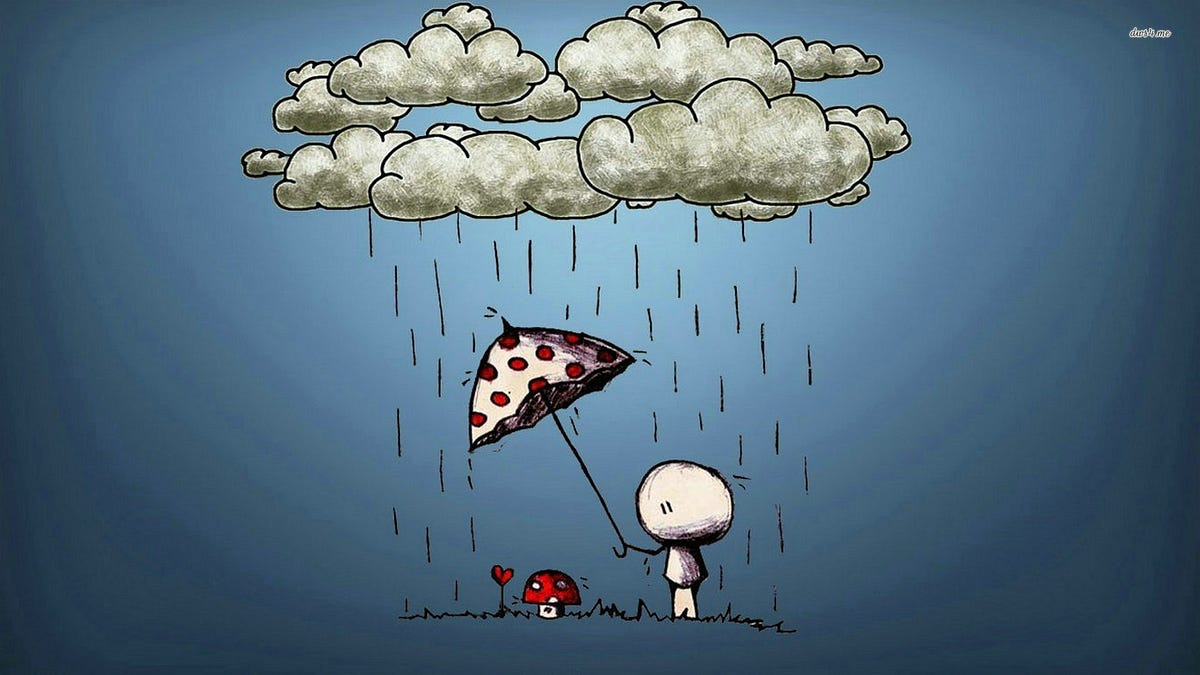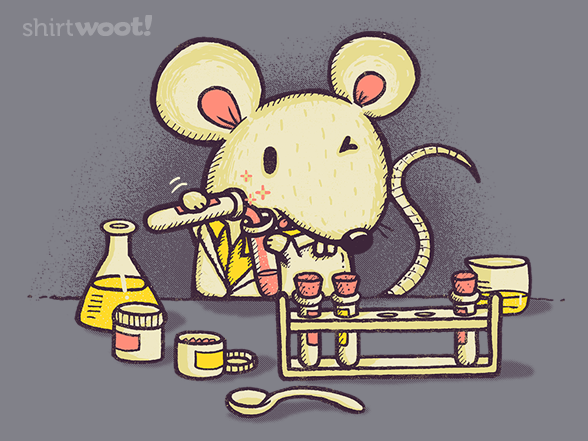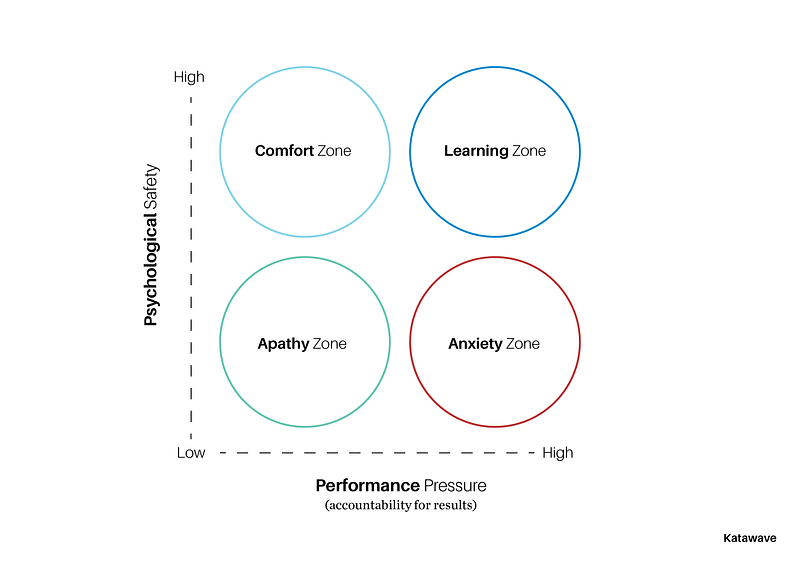
“You don’t build a business. You build people, and people build the business.” — Zig Ziglar
When working with lab rats scientists handle them frequently. While handling rats Neuroscientist Michael Meaney discovered a consistent pattern. Whenever his team dropped baby rats some mothers would run to lick their babies to console them, while other mothers would not console them.

Handling the rats caused them anxiety and this released stress hormones. When mother rats licked their babies this counteracted the stress hormones.
Meaney’s team monitored every instance of licking and grooming in the rats. After ten days, the team divided the rats into two groups: those licked a lot and those only licked a little. After one hundred days, when the rats were fully matured, they were subjected to a series of further tests.
Some tests stood out.
The “open-field” test is where rats are put in a large box to see how they might explore an area over a five minute period. The licked-a-lot rats explored very confidently. They roamed around the box for up to 35 seconds. In contrast, the low-lick group lacked confidence and spent a mere few seconds exploring the box.
In the “fearfulness” test, hungry rats were put in another box and offered food over a 10 minute period. Once again, the licked-a-lot rats started eating after only four minutes and ate for longer. It took the low-lick rats nine minutes to eat and they only ate for a very short period of time.
The well-cared-for rats were more social, more curious, less aggressive, healthier and lived longer.
These rat studies highlight the need for nurturing in business (and in the home) to encourage an engaged and empowered working environment.
Psychological Safety

Psychological safety is the shared belief that we are psychologically safe to take risks when we are in a team environment. If you are in a company, organisation or team and you feel you cannot voice your opinion for fear of loss of self-image, status or even career then you are not in a psychologically safe environment.
We brought our kids to the Lego Ninjago movie (highly recommended) at the weekend. The villain of the movie is called Garmadon. In the scene below he asks his team of generals to come with ideas of how to destroy the good guys. Every time a general voices their opinion he ridicules the idea and shoots the general out of his volcano lair. While hilarious in the movie, this is not so funny in real life. This is psychologically done to people all the time.
When we feel safe, we feel we belong and come together with people who share the same vision, who genuinely have our bests interests at heart we cooperate and we achieve. Birds of a feather flock together only if they feel safe within their flock. In psychologically safe teams, team members feel accepted and respected. In psychologically safe teams, team members feel confident to contribute. In psychologically safe teams, team members innovate.
Setting the Stage

We have talked before on The Thursday Thought about how leaders should be like farmers. Farmers do not make crops grow, but they create the environment for crops to flourish.
Many leaders feel they need to be the lead innovator in an organisation of any size. They feel they need to have all the questions, all the answers and all the solutions. The problem with this is that the company will suffer from genius-with-a-thousand-helpers syndrome (as identified by Jim Collins in ‘Good to Great’), where success is reliant on the leader because the leader feels compelled to control everything. This is not scalable and prevents the rest of the organisation from learning and growing.
This is not always the fault of the leader. Putting yourself in a leaders shoes, the leader may not feel psychologically safe enough to distribute authority and to be a credit maker rather than a credit taker. In this respect, boards of directors need to instil a safe zone around the CEO and her leadership team. Indeed, the boardroom itself should be a safe zone.
In an ideal world, leaders don’t need to take the stage, but leaders do need to set the stage.
Trust
While Psychological safety is about a group attitude towards the group or organisation, trust is about an individual’s belief about their colleagues and team. Do I trust my teammate really has my back? Would they sacrifice me to save themselves? These are fundamental questions and ones so many changemakers will face. This is especially the case when an organisation has a crystallised negative culture.
When there is trust within a safe group people will reach deeper into their discretionary effort and deliver not just for themselves, not just for their “teammates”, but for the purpose the organisational purpose.
When people are psychologically safe and empowered, they will speak up more and will be motivated to improve their team, their company and ultimately the bottom line.
A Common Purpose — A North Star
Often CEOs try to come up with the vision for their organisation all alone and usually within their first 90 days. As discussed this is often because they themselves do not feel psychologically safe and feel they need to have all the answers. When this is the case and a North Star has been developed in isolation, then there is no emotional connection to that North Star. (Katawave works with Leaders to co-create a resonant and resilient North Star with leaders, not just one leader).
If the CEO or senior leaders nurture the organisation, employees will feel confident enough to “explore” more, just like the rats who were shown more motherly affection. People will be more willing to share ideas and accept constructive critique. As this safe culture grows, some people will venture far enough where they may just discover a breakthrough. This exploration can lead a new business operating system (bOS), which will help companies ride the tide disruption. When you add the direction and focus of a North Star within any safe organisation the results are transformational.
Innovators, Changemakers and Mavericks need to feel “safe”, as they venture outside the comfort zone of the existing culture.
True innovation comes from changing mental models and not just business models.
If the company culture is not “safe” the ideas from your people will be.
Thanks for reading, please hit like so the LinkedIn algorithm puts this post in front of other people.
___________________________________________________________________
On this week’s show EP 59: “Let Me Out” Unleash Your Creativity, we talk to musician Peter Himmelman, author of the best-selling “Let Me Out”, a book which aims to liberate creativity and potential in individuals and organisations.
Peter Himmelman is an American singer-songwriter and film and television composer from Minnesota, who formerly played in the Minneapolis indie rock band Sussman Lawrence before pursuing an extensive solo career. Peter is also the founder of Big Muse, a company which helps individuals and organizations unlock their creative potential.
Peter is also the author of the best-selling “Let Me Out”, a book which aims to liberate creativity and potential in individuals and organisations.
We talk about the tools that can unleash potential, about the way corporations shackle their talent and how we as individuals can take control of their lives to release their potential.
You can find out more about Peter here: peterhimmelman.com and here: www.bigmuse.com
You can find his book here: http://a.co/akxm8VO and here: www.letmeoutbook.com/buy
You can find his albums here: https://itunes.apple.com/ie/
The show is broadcast on RTÉ Radio 1 extra 3 times weekly and is on iTunes, TuneIn Stitcher Player FM and Google play. The website is here and below is Soundcloud.